What with Brussels Jazz, River Jazz, and Djangofolllies, January is the jazz month in Brussels. In 2017, the AB and Flagey will be helping to keep the jazz fires burning to mark 100 years of jazz. In anticipation, BRUZZ bridges the generation gap by bringing walking jazz encyclopaedia Marc Van den Hoof face to face with the youthful aplomb of Andrew Claes, who is breathing new life into the genre via BRZZVLL and STUFF.
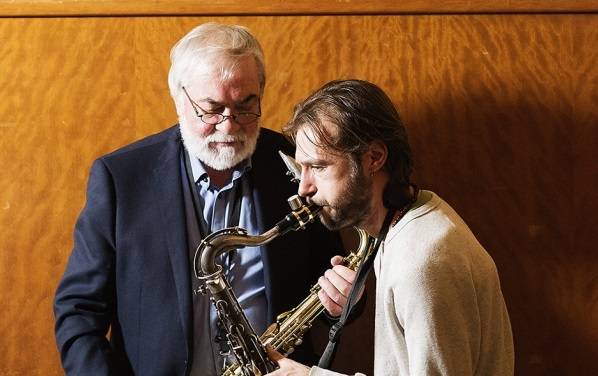
100 years of jazz: 'Jazz has no future, it's now!'
Also read: Herbeleef 100 jaar jazz op BRUZZ
A great many Flemish jazz musicians were once taught by the former radio presenter Marc Van den Hoof, who lectured in jazz history at the Lemmensinstituut in Leuven and will soon be giving a series of five talks on jazz at Flagey. Andrew Claes wasn't one of them, however. The Antwerp saxophonist, who will be playing at the Brussels Jazz Festival with BRZZVLL, who is due to bring out a new STUFF. album in April, and who is also a regular in a number of other bands, studied at the Brussels and Antwerp conservatories.
And yet: "When I was at the conservatory, on Sunday evenings my parents used to turn on your jazz programme on Klara; that's how I was introduced to Charlie Parker," recalls Andrew Claes with gratitude.
You might think that discovery came a bit late, but, unlike the 70-year-old Van den Hoof, 34-year-old Claes didn't learn his jazz history chronologically. "As a young guitarist, I listened to Jimi Hendrix. But when I started playing the sax at the age of thirteen, to move from Hendrix to, say, [jazz guitarist] Wes Montgomery seemed quite weird. In those early years of jazz, the guitar was not to the fore in the mix, nor was there any sign of effects. When, unexpectedly, I heard John Coltrane, it became clear to me that the saxophone was the solo instrument in jazz. Having grown up with Hendrix and techno, bebop was too difficult for me and I ended up falling in love with A Love Supreme."
When he sees the shiny 1972 tenor saxophone Van den Hoof has brought along, Claes (who has a 1936 sax with him) puts the pieces together: "I still remember how you used to talk about Charlie Parker's reeds on the radio and I used to wonder how you knew all that…"
Van den Hoof once appeared onstage at Jazz Bilzen, in Willy Roggeman's quartet. Later, when he was already working for the radio, he admitted to the trombonist Slide Hampton, whom he had taken classes with, that he didn't find himself that talented. "He answered me by saying, 'More musicians should follow your example.'" [Laughs] But he still finds the time to practise. A while ago, when he was stuck at home with a broken leg, that gave him extra motivation.
The two exchange experiences about their instrument and their teachers, and even treat us to a few tunes during the photo session. All in the context of 100 years of jazz – back in 1917, "Livery Stable Blues" by the Original Dixieland Jass Band was the first jazz record ever. Van den Hoof had told us earlier how a Duke Ellington concert in 1960 had inspired him to play the saxophone and how someone found an old alto for him in the attic of the local wind band, one with a double octave key!
"I had already got to know jazz through the people across the road. They rehearsed every Sunday with their dance band and they had an old photograph of the sax legend Lester Young on the wall. Then I started reading and listening. There were no schools. A little while ago, I looked at some old school reports. My results were excellent, but they wondered why I had to get involved with 'that stupid, pointless music'."
Welcoming and innovative
Claes belongs to the first generation of students who had the option of taking "jazz and light music" in music school. "Even though they tried to work chronologically there, I still have the impression that I have absorbed jazz history back to front. For me, the leap from Hendrix to Coltrane was much smaller than that to Parker or The Complete Savoy Recordings (by Lester Young). Miles Davis was a model. He came across Cyndi Lauper's 'True Colours' on the radio and did his own thing with it. So I first of all came into contact with what those old jazz guys did with contemporary stuff and it was only later that I discovered what they had made their breakthrough with."
For Claes, there are two sides to jazz. "On the one hand, from a distance you could call jazz a style. But for musicians who play jazz themselves, it is much more a way of playing than a genre. If Coltrane had kept on playing bebop, because that was jazz then, modal jazz would never have come into being. If Miles Davis had kept on playing modal until the end of his career, there would have been no fusion. So if you play 1940s-style jazz now, that's the jazz genre, but for me it lacks the innovative approach that makes jazz so interesting. What's cool about jazz is that it is both progressive and has a pedigree. So people will always play bebop and Dixieland and there will always be things on the margin that people will only call jazz in a hundred years' time, and there will always be discussion about what jazz is and isn't."
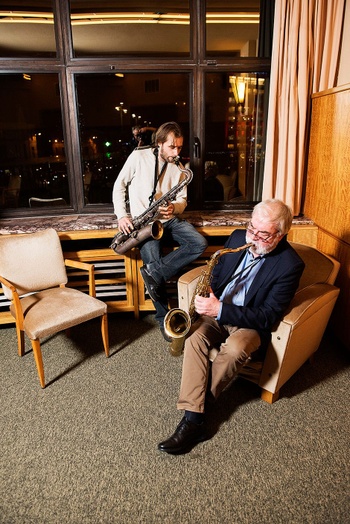
© Ivan Put
Surprisingly, Claes compares the language of jazz with that of his bird. "If I don't play too loud, he starts to join in after a while. [Laughs] In jazz, you have, on the one hand, the patterns, irreverently described as jazz clichés: the basic language. But then there are also harmonic devices that, starting in the Sixties, found their way in via, for example, Coltrane and Wayne Shorter. That is the form of communication, speaking without words, like the birds. So it's not just about the acrobatic aspect, but also about the narrative, about the conversation."
Child of his time
Each of the jazz greats, according to Claes, developed a mechanism, a way of thinking that ushered in a different time (zeitgeist): Parker, Coltrane, Davis, Ornette Coleman, etc. "If Coltrane were to be born today, I don't know whether he would have played tenor sax in a quartet with piano, double bass, and drums."
In his own groups, too, Claes tries to focus on the zeitgeist. "In STUFF., we recast the music that appeals to us – Flying Lotus, Aphex Twin, etc. – in a new structure and take it to the dance club. After people have danced to popular music, we do an improvised live take on it. That is exactly the same as in the days of bebop. Back then, to earn a little extra, musicians would first play at a wedding and then have a few beers and play 'I Got Rhythm' the way they wanted to. In BRZZVLL, too, which is influenced by Afrobeat, we start out from the idea of what we can add to the genre. And in Hamster Axis of the One-Click Panther, we do play in a classic jazz line-up, but we always try to draw our guest vocalists out of their usual habitat. In my bands, jazz is always a child of its time. If it isn't contemporary, it dies."
"I don't think much about whether it's all jazz or not," concludes Van den Hoof, who these days often returns to the musicians that first moved him: Lucky Thompson, Coltrane, Ellington, Monk, and Sonny Rollins. "Sometimes I do find it difficult to like new things. But when people ask me about the future of jazz, I invariably answer: jazz has no future – it's now. All those things alongside each other: that's it."
> BRZZVLL. 13/01, 22.30, Flagey, Elsene/Ixelles
> JAZZ 100 - een geschiedenis van de jazz. 15/01, 29/01, 19/02, 11/03, 26/03, in Dutch, Flagey, Elsene/Ixelles
100 jaar jazz
Read more about: Elsene , Muziek , 100 jaar jazz
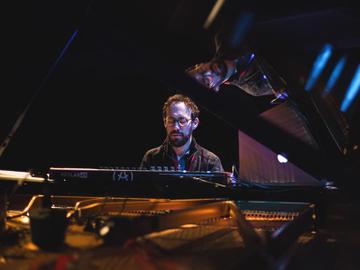
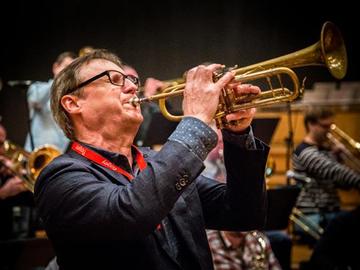
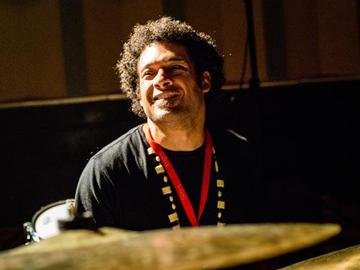
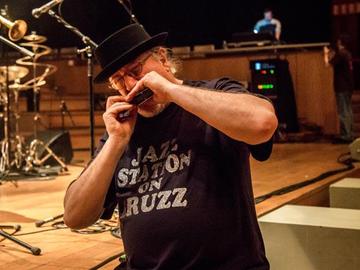
Fijn dat je wil reageren. Wie reageert, gaat akkoord met onze huisregels. Hoe reageren via Disqus? Een woordje uitleg.